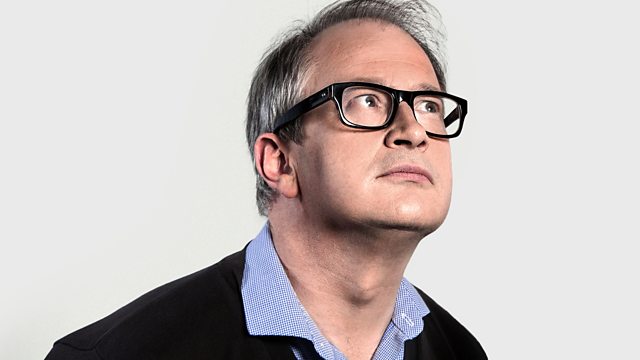Murphy's Law
"If anything can go wrong, it will go wrong". Robin Ince goes in search of the origins and mathematical proof of Murphy's Law
Comedian Robin Ince explores the laws that govern our lives that really aren’t, but still somehow are true. We all know how we live in a deterministic universe governed by carefully described quantifiable scientific laws and principles but, then in a practical sense, we really don’t. These laws are the hidden truths which really preside over our lives – quirky, useful or entertaining rules, which, if they are well known, crop up without explanation or, if confined to specialist circles, deserve to be more widely understood and appreciated.
From Murphy’s Law (anything that might go wrong does so), to Betteridge’s Law ( any headline that ends in a question mark can be answered by the word “no”) via Parkinson’s fundamental law of bureaucracy ( work expands to fill the time available) and the Peter Principle (employees rise to their own level of incompetence) Robin Ince examines five laws that aren’t laws in the legal sense, or in the physical sense but asks how did these so called “laws” evolve, why do we like them and what scientific evidence is there that they really work?
Episode 1 Murphy’s Law:
“If anything can go wrong, it will go wrong.” Murphy’s Law is now a part of our culture, used to describe wrong outcomes of every sort, from how buttered toast falls to the way catastrophes strike.
People have uttered similar laments since time immemorial. But the modern origin of the phrase traces back to two men on one fateful day in 1949 at Edwards Air Force Base in California: Colonel John Stapp whose work would later save countless lives in safer cars and airplanes and Captain Ed Murphy whose contributions would lead to safer cockpit controls and foretell the development of better computers and software.
Robin Ince uncovers their tangled tale which sprang from a series of mishaps when what could go wrong did go wrong, risking life and limb for the rider, and how, ironically, the origin of Murphy’s Law went unnoticed by Murphy himself.
But does this law simply tap into our tendency to dwell on the negative and overlook the positive? Or are the rules of probability - the mathematical likeliness that something will occur - sufficient to support it? We hear how the mathematician whose car’s clutch ceased to function 100km from home, at night in the middle of a rainstorm with no phone and a flooded tool kit, came up with the definitive equation to predict how often things really do go wrong for no good reason.
Producer: Adrian Washbourne
Last on
More episodes
Previous
You are at the first episode
Next
Broadcasts
- Mon 17 Aug 2020 09:30����ý Radio 4
- Mon 3 May 2021 13:45����ý Radio 4

